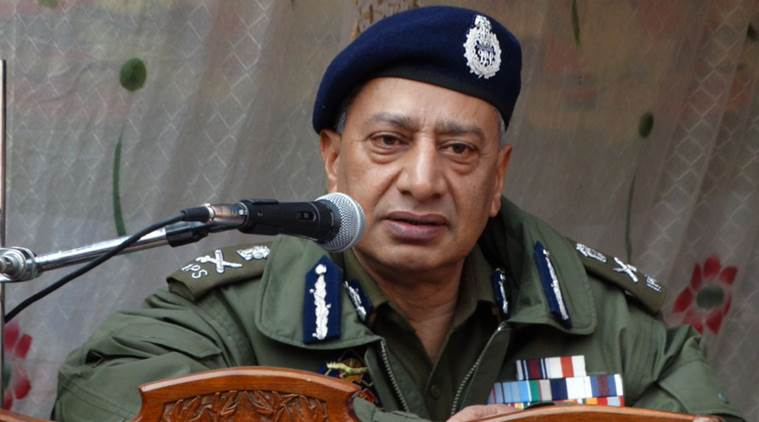 Jammu and Kashmir, Director General of Police (DGP) S P Vaid (File Photo)
Jammu and Kashmir, Director General of Police (DGP) S P Vaid (File Photo)
A day after the BJP pulled out of the coalition government with the PDP in Jammu and Kashmir, Director General of Police (DGP) S P Vaid Wednesday said that counter-terror operations will be much “easier” for security agencies under Governor’s rule and that such operations will be intensified. “I think, operations will continue. Only thing was in between during this period, operations were stopped. They were going on earlier also,” Vaid said in an interview to NDTV. “But we will intensify these operations in days to come and it would be, I think, much easier to work.”
The state was placed under Governor’s rule for the fourth time in the last decade Wednesday after President Ram Nath Kovind approved the imposition of Governor’s rule. As Governor N N Vohra held meetings with security agencies, Army chief Gen Bipin Rawat said ongoing military operations in the Valley against terrorists would continue as earlier.
Sources said that security forces are likely to get a free hand to deal with militants and that counterinsurgency operations in the Valley may spike. “With the Centre directly controlling the state, we think now there will not be much political interference in our anti-militancy operations,” a senior police officer told The Indian Express. “A civilian government has many political compulsions that would, at times, hamper our operations.”
According to the police officer, security agencies were hugely successful during ‘Operation All Out’ launched against militants last year. He, however, said fresh militant recruitments, particularly in South Kashmir, have not changed much on the ground. “In 2017, over 200 militants were killed including most of their top commanders,” the officer said. “Of these, over 100 were local militants. But at the same time, another 100 youth joined militant ranks making it necessary to continue the anti-militancy operations with the same zeal.”
The police officer also said that they had expected militant recruitments to decrease during the Ramzan ceasefire announced by the Centre. “As far our reports are concerned, militant recruitments have not been affected much by the ceasefire. They continued to recruit more boys,” the officer said.
According to security agency data, since January this year over 85 local youths have joined militant ranks, most of them in South Kashmir.